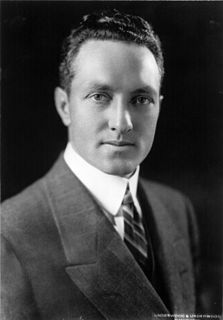A Quote by Dan Lipinski
TPP replicates similar language from past trade agreements that has allowed foreign corporations the right to challenge U.S. federal, state, and local laws outside of American courts. These tribunals will not meet our high standard of transparency and due process, and they will rely on weak impartiality rules for selecting judges.
Related Quotes
A hand from Washington will be stretched out and placed upon every man’s business; the eye of the federal inspector will be in every man’s counting house… The law will of necessity have Indus[tr]ial features, it will provide penalties, it will create complicated machinery. Under it, men will be hauled into courts distant from their homes. Heavy fines imposed by distant and unfamiliar tribunals will constantly menace the taxpayer. An army of federal inspectors, spies, and detectives will descend upon the state.
If we stuck to the Constitution as written, we would have: no federal meddling in our schools; no Federal Reserve; no U.S. membership in the UN; no gun control; and no foreign aid. We would have no welfare for big corporations, or the "poor"; no American troops in 100 foreign countries; no NAFTA, GAT, or "fast-track"; no arrogant federal judges usurping states rights; no attacks on private property; no income tax. We could get rid of most of the agencies, and most of the budget. The government would be small, frugal, and limited.
How we decide the vexed issue of the method of selection of judges of the Supreme Court and the high courts would determine the future of our democracy and the rule of law in the country. We are faced with the twin problem of selecting the best judges and also ensuring that the judiciary would be insulated from executive interference.
NAFTA and GATT are quite similar. They both have highly protectionist elements. They're kind of a mixture of liberalization and protection designed to expand the power of transnational corporations. They're very basically investor's rights agreements. One crucial part in both is the "intellectual property right," which is a funny way of saying that corporations, like pharmaceutical companies, will have near-monopolistic rule over future technology. This now includes product as well as process rights.
If we're going to pass international trade agreements, as we should, they should have similar kind of rules, not as high a wage as obviously as a steelworker in the U.S. or in Lorain, Ohio, but certainly rules on the environment and worker safety. You go to Mexico, you don't see those kinds of worker protections or environmental safeguards.
The United States Constitution builds politics right into the process of selecting federal judges. This third branch, the judiciary, is designed to have a longer view. To have individuals who are more insulated from politics. They're not elected directly. They're appointed for life. So, politics enters, but it's also, controlled. And if you bypass this process, I'm not sure what we do.































